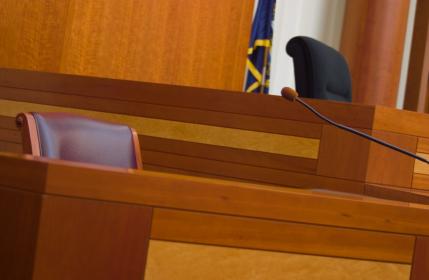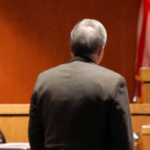Recanting Witness
Are you entitled to a new trial when a witness recants their testimony? If the defendant can satisfy a three-part test, it is possible to get a new trial.

New Trial Based on Recanting Witness
Are you entitled to a new trial when a witness recants the testimony given at trial? The answer is maybe. In United States v Bass, which was decided in April 2015, Bass was convicted of credit card fraud. His co-defendant recanted his trial testimony against Bass. The trial court held a hearing and concluded that the recantation was not credible, and the conviction was affirmed. The Court of Appeals agreed, stating that recant was not credible. The court held that the granting of “a new trial based on witness recantation depends on three factors: (1) the testimony was material and false, (2) the jury would have reached a different conclusion without the testimony, and (3) the party seeking the new trial was surprised by the false testimony and was not aware of its falsity until after the trial.”
To successfully obtain a ruling granting a new trial, the defense lawyer must be prepared with enough evidence to satisfy the three-part test used in federal court. At the trial and appellate levels, judges will bend over backward and twist their legal analysis in a knot to maintain a conviction. Without a defense attorney who is knowledgeable, prepared, and tenacious, the defendant does not have a shot at getting this type of extraordinary relief.
What does “recanting” mean?
When witnesses recant their testimony, they take back, withdraw, or disavow a statement or testimony they previously gave, typically under oath. A recantation can be partial (only part of the original testimony) or complete (the entire testimony).
Why might a witness recant their testimony?
Several reasons might lead a witness to recant their testimony:
- New Information: The witness might encounter new information that changes their perspective.
- Misunderstanding or Error: A witness might recant if they realize they made an error in their original testimony or misunderstood a question.
- Pressure: Sometimes witnesses recant due to external pressures, including threats or coercion.
- Guilt or Conscience: If a witness knowingly gave false testimony, feelings of guilt or a change of heart might drive them to correct their statement.
- Legal Strategy: In some cases, an attorney might advise a witness to change or withdraw their testimony based on the legal ramifications of their statements.
What is the impact when a witness recants their testimony?
However, it’s worth noting that recanting can have significant legal consequences. For one, it might undermine the witness’s credibility in the eyes of the court since it raises questions about why the witness is changing their story. Additionally, witnesses who knowingly gave false testimony under oath could be subject to perjury charges.
The impact of a recanted testimony on a case can vary. In some situations, it can lead to a case being re-opened, a verdict being overturned, or a judge ordering a new trial, especially if the recanted testimony was pivotal to the original outcome.

Specializing in ONLY Criminal Defense
There are many nuances in the practice of criminal law and much to know. This is why you do not want to trust your future and freedom to an attorney who “multitasks” by practicing in other areas of the law AND criminal law. The finer points of criminal law can run from knowing whether a confidential informant’s information is admissible as evidence or what to do when a witness recants to being able to cross-examine a police officer properly. This high level of savvy representation and legal ability takes years to perfect. A top-of-the-line criminal defense attorney must engage in many hours of annual study and practice. The defense attorneys at LEWIS & DICKSTEIN, P.L.L.C. have decades of experience successfully defending clients in state and federal courts throughout Michigan. Our attorneys have long and impressive records of success. LEWIS & DICKSTEIN, P.L.L.C. takes its role as one of Michigan’s premier criminal defense law firms very seriously. We will find a way to help you.
Call us today at (248) 263-6800 for a free consultation or complete an online Request for Assistance Form. We will contact you promptly and find a way to help you.














